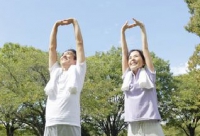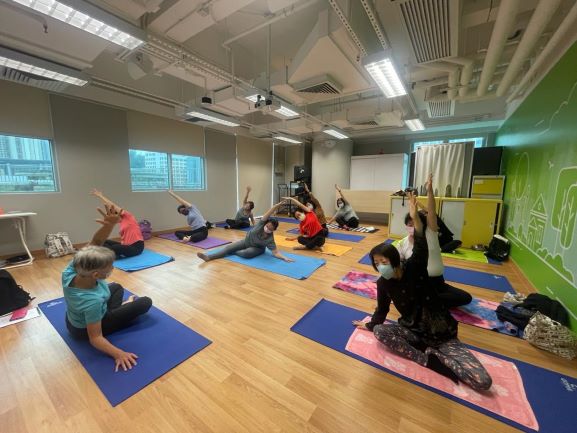Keeping Fit - Why bother?

What difference can exercise make to our health? Can it help us even if we’re ill? What types of exercise do we need? Why bother?
Research suggests exercise brings major rewards. Some health experts have described it as a ‘miracle cure’ and a ‘wonder drug.’
Exercise – reduces the risk of serious illness?
That was the verdict of a report from the Academy of Royal Medical Colleges in 2015. The report reveals that regular exercise can:
• Reduce the risk of breast cancer by as much as 25%
• Reduce bowel cancer risk by as much as 45%
• Reduce the risk of ever developing dementia by up to 30%
• Reduce the risk of a stroke by up to 30%
• Cut the chances of developing heart disease by over 40%
In fact regular exercise appears to be more effective than many medications.
The NHS reports similar health benefits – plus a reduced risk of diabetes and dementia.
Exercise – helps people who are already ill?
That was the Mayo Clinic’s verdict for people with chronic disease,such as heart disease, diabetes, asthma, or back or joint pain — where they report that exercise can have important health benefits.
In 2013 the BMJ reported exercise also appears to be as effective as many drug interventions in helping reduce death rates in patients with coronary heart disease. However, more research is needed here as the evidence so far is more limited than for patients with cancer.
Exercise – helps with mental health too?
‘Exercise seems to improve depressive symptoms in people with a diagnosis of depression when compared with no treatment or control intervention.’ That was the conclusion of a review of existing research published in 2012. However the review also indicated that more high quality evidence is needed to confirm this.
Exercise may also reduce the severity of depression for older people. That was the verdict of a review of studies, published in the British Journal of Psychiatry in 2012.
What types of exercise do we need to stay independent?
Whether you’re 19–64 or 65+ advice from the NHS is similar. If you are generally fit and have no health conditions that limit your mobility, you should do both aerobic and strength exercises.
Three elements in particular are important to ensure we maintain physical independence throughout life, as you can see in the practical examples below:
• Strength: being able to exert enough force to lift, pull and push (needed for everything from climbing stairs to carrying shopping – and even getting tops off bottles).
• Stamina: being able to keep going, for instance when running or walking, without getting tired and out of breath very quickly (useful if you need to get somewhere in a hurry – or even to keep up with your children or grandchildren).
• Suppleness: being able to bend, stretch, twist and turn through a full range of movement (useful for jobs around the house, cleaning, gardening, and even getting in and out of cars).
Exercise – better late than never?
Cancer Research UK advises that it is never too late to start exercising even if you have been inactive for years.
You can exercise more, at no financial cost, in your daily life. For example you can get off the bus a few stops early and walk the rest; walk up the stairs rather than taking the lift; walk to the local shops, rather than taking the car; and go and talk to colleagues in other departments instead of emailing them.
Tips to keep you motivated
Age Watch’s research into health behaviour change (due to be published later in 2016) suggests that physical activity is easier to keep up in a social context – for example with family, friends or colleagues. It is often more enjoyable and you can support and motivate each other.
Three practical tips to maintain your motivation and keep exercising:
• Find an exercise partner or join a club or class (so you can motivate each other);
• Set yourself an exercise goal that matters to you (e.g. to take part in a charity fun run, or get into that pair of trousers or dress that used to fit you – so you have a reason to keep exercising);
• Make a date in your diary (and treat it as a priority).
It also helps to do several complementary types of exercise, to ensure that together they are providing the strength, stamina and suppleness you need. For instance:
• Walking is good for stamina and leg strength, as is cycling;
• Yoga is good for suppleness;
• Dance is good for balance, suppleness and stamina.
• Swimming is good for strength, stamina and suppleness.
However it is advisable to consult your doctor before doing anything too strenuous.
Conclusions
• Exercise can make a real difference to our health.
• It can reduce the risk of serious illness – and may even help us recover if we become seriously ill.
• The three S’s (strength, stamina and suppleness) are important if we want to remain physically independent.
• Swimming is good for all three.
• There are many ways to get active – you don’t have to join a gym.
• Exercising with other people, with a goal that matters to you and with a regular schedule can all help you keep you motivated.












